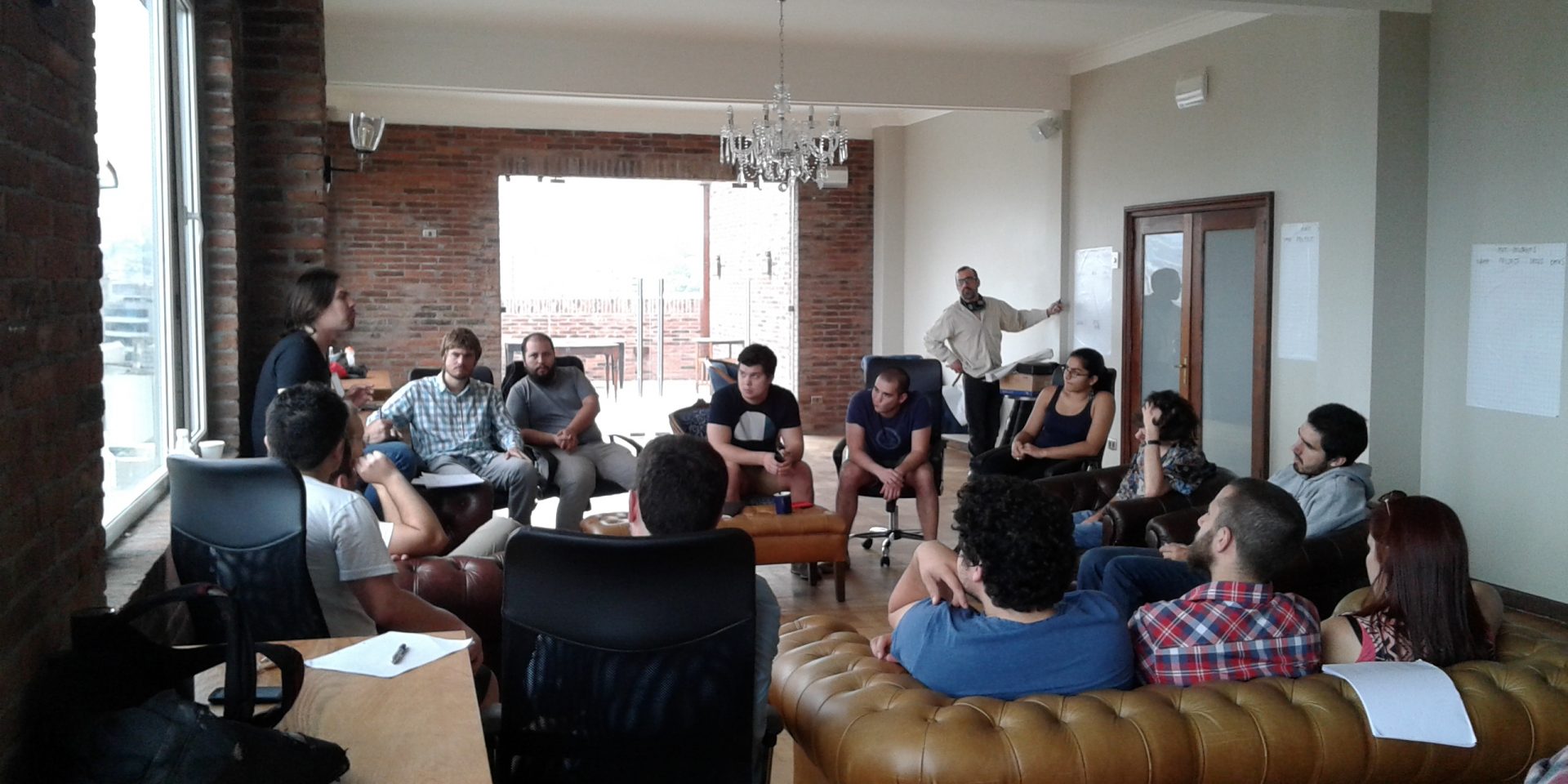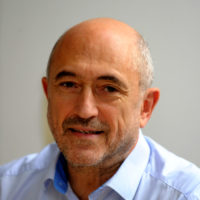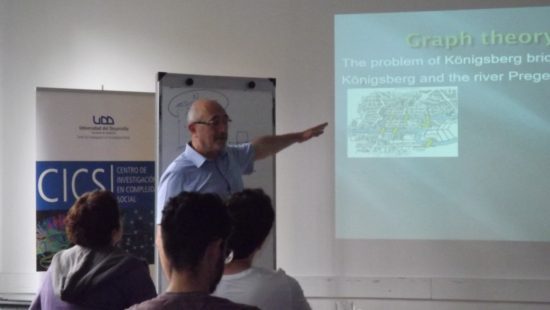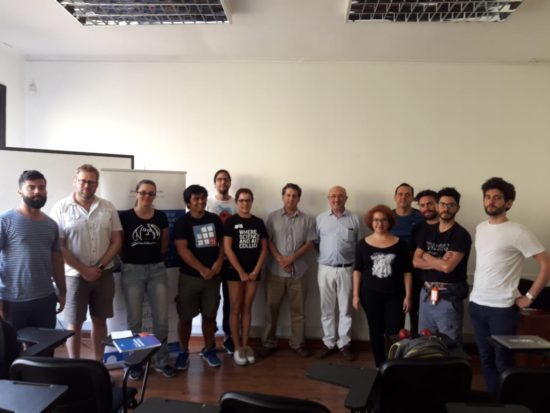
“It is fascinating. He has a complete vision of the networks theory and the mathematical physical theory which sustains it, that is the Graph Theory, and how that theory is applied to a huge diversity of social systems. It is capable of transmitting these possibilities and thus greatly increase the knowledge potential that is available on these networks “. That’s what Sebastián Donoso felt, a PhD student in Social Complexity Sciences, about the Hungarian physicist Janos Kértesz, after dictating the “A brief course on network science” workshop, at the Research Camp 2019.
 About his impressions during his first visit to Chile, his participation in the NetSciX, econophysics, the current situation of the Central European University and more, told us after concluding his three-day workshop at the CICS.
About his impressions during his first visit to Chile, his participation in the NetSciX, econophysics, the current situation of the Central European University and more, told us after concluding his three-day workshop at the CICS.
– You have been a pioneer in the field of Econophysics. Now that the time has passed since the first contribution in this area, in your opinion, what are the most important challenges in econophysics research?
In the nineties, a lot of data were available and many of them were also interchangeable, so some physicists thought it was time to introduce new approaches to analyze financial data. Namely, the traditional analysis of financial data was based, for example, on simple models and what we think – and I must mention some names like James Stanley, Rosario Mantegna and others who have been in this area – was that the Market is an interactive system where there are many players who interact through transactions, and that is exactly what the econophysicists we study say: systems with many interacting components, many of them molecular and, in our case, physical interaction. I would say that we acquired this knowledge from the study of physical systems: that was the origin. From there, we began to analyze financial data and apply some of our tools, such as correlations and response functions, and with them we obtained interesting results, so it was very encouraging. I would add that some of the economists recognize that this is an interesting contribution.
– Economists have always been labeled as “want to be physicist”; however, mainstream economics has been reluctant to adopt novel contributions such as those developed within econophysics. In your opinion, what are the assumptions within the dominant economy that should be modified to enable a more fluid dialogue with econophysics? Or, are you more of the idea that we are facing a scientific revolution?
The mainstream economy is a beautiful intellectual construction and the main assumptions suggest that economic agents are maximizing their utility. There is an average individual that, when is studied, the general validity of the system can be understood and the information is transmitted interactively and so on, these are models or theories that are structurally well. The only problem with that is we are not simply optimizing our profits; All kinds of things are happening within the system and by looking at the representative agent is not enough to describe them. And these are things we observe in Physics. It is an advantage physicists have: they know how to distinguish situations when such concepts of representative agents can work from those in which they can not apply. And there are cases in economy that work pretty well, but there are cases where they do not, they just fail.
I think that although it is not easy to move an entire scientific community, there is a very powerful inertia, which gradually needs to consider other aspects more and more. In fact, from the side of economy, there are lots of research activities in that direction, for example, behavioral economics and the mainstream economy is quite strong, but we are witnessing a change, and the reason is that the theory is continually being challenged with observation, and that is something economists have done. And the observations that have been made, for example, with global crises, force us to change theories. For example, returning to the global crisis, it has become clear that there are collaborative effects; What I mean by this is that there are reactions in chains in the banking system. These are points that were totally forgotten in the mainstream. And I think that in this area there are many achievements with this approach.
– Why has Hungary contributed so much to Graph Theory and Complex Theory? Is there any parallel in other disciplines in Hungary?
This is a very interesting question, because there are great names related to Graph Theory in Hungary and in the region. This is not an easy question and I do not know the exact answer. It has to do with training in a college: when someone is very good at something, there is a college around this person and so on. It also has to do with the attitude of the Hungarians. I think this is a very good observation in sociology.
The current Science – Hungary relationship
Hungary joined a group of authoritarian countries that have closed independent universities, including Belarus (European Humanities University), Russia (European University in St. Petersburg) and Turkey (multiple universities). We asked Professor Kertesz his vision on this issue.
– The current Hungarian regime has put the Central European University in a difficult situation. In your opinion, what is the impact that you visualize this will have on academic work in your field? Using the jargon, is the network of Complex Science scientists flexible enough to recover quickly from this attack?
I get sad when I hear this question because of the situation we face. In fact, this attack against the Central European University is not the only one we have to face in Hungary. We hope to recover and continue at a high level. We are going to Vienna, to a city that is not far from Budapest. It is not yet clear how practical this will be, what life will be like on university campuses. All I can say is that this story about Central European University has lasted for nearly two years and the solidarity of the scientific world has always been very important for us. There has been a lot of push, support, signatures and that really strengthens us.
– To conclude, tell us about the impression left by Chile and Science.
I had not been in Chile before but I did know about the scientists and I am impressed in a positive way, both teachers and students, who are very active. I think this is a good University, besides that they were able to organize the NetSciX meeting, which was very successful, which also shows how well placed they are in the international scientific environment.

